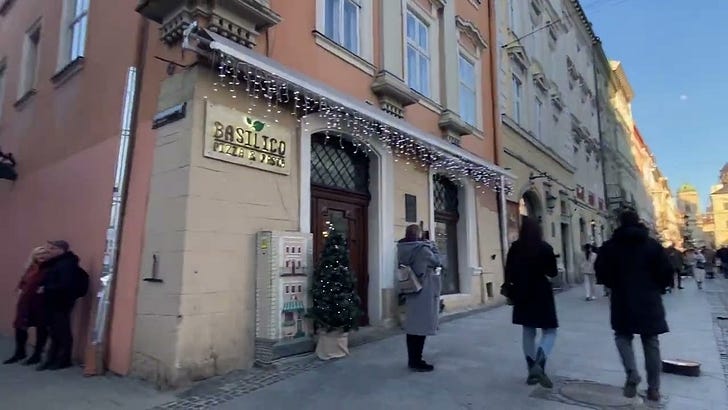LVIV, UKRAINE—The tension increases today as some airlines, including KLM, dramatically cancel flights to Ukraine and over Ukrainian airspace. Embassy staff are relocating from the capital Kyiv to Lviv, about 540 km / 330 miles to the West, although the British ambassador and a small team remain in the capital.
What do we make of this? Are we approaching something like the fall of Saigon or Kabul? Most stories about Ukraine right now, while appropriately assessing the Russian threat, seem to ignore Ukraine’s strengths: It’s the largest country wholly within Europe, rich in natural resources. Its military today is significantly better equipped and stronger than in 2014 when unsophisticated bands of citizens rose up to defend major cities from Russian takeover.
You can read more about those wild days of 2014 here: “In ‘Dire’ 2014 Ukrainian Citizens, with Few Resources, Defied Russia’s Might”
Perhaps realizing some of their strengths, the people here are optimistic, or, to quote psychologist Viktor Frankl, “tragically optimistic.” They have faced Russian threats before. And so on this sunny Sunday, the cobbled streets of Lviv are filled with locals and visitors enjoying the city’s large pedestrian centre while street musicians play. The sound of choirs broadcasts into the streets from churches—Lviv’s equivalent of, say, Istanbul’s prayer calls. The cafés are busy, full of people laughing and talking.
At the Greek Catholic Garrison Church of Sts Peter and Paul, after the English-language Sunday liturgy, a children’s’ choir wearing the vyshyvanka, the traditional Ukrainian embroidered shirt, sang a Christmas concert: among the last events of the festive season which is celebrated longer and at a different time here than in the West.
From Kharkiv, across the country and 20 miles from Russia, I heard from a friend who until this weekend was not very nervous. But the news that commercial airlines are suspending flights to and over Ukraine, and the removal of embassy staffs to Lviv, is causing a new angst.
That friend in Kharkiv writes, “Most of our people are worried about the future now. It is a new feeling. You are keeping the money, you don’t consider buying anything valuable during this period, you keep your passport wherever you go. Crazy times.”
Still, he says: “I think that ‘invasion’ won’t be so easy for Russians as it was in 2014. Country is prepared to fight.”
Read more: “Kharkiv: ‘Commercial, Multicultural, Tolerant, Russian-speaking, … and Ukrainian.”
American friends who are Russia experts and security experts tell me that there’s chatter among defense experts on Twitter that Russia’s 1st Guards Tank Army, is assembling around Belgorod, the nearest Russian city to Ukraine’s Kharkiv (when I was in Kharkiv two weeks ago, taxi drivers at the train station were offering rides to Belgorod).


In the city of Uzhhorod, near the Slovakian border, life is normal, according to friends; they are after all far away from any threat. “Time and space work differently here,” a friend says, adding that the threats from Moscow and the warnings of war from Washington are “themes for chatting at dinner tables or pubs.”
So what is happening? It is hard to know. I have been speaking all day with friends in Kyiv, the USA, and elsewhere, in addition to the local conversations here. This podcast with my friend Kostya Chyzhyk in Kyiv, who has worked for both the current president Zelenskiy and the previous one Poroschenko, sums up the attitude of many Ukrainians: Putin—and perhaps others—and rattling the nerves not of Ukrainians but of Europeans and, especially, Americans, he says:
For most immediate updates, please follow Joe Lindsley’s personal Telegram Channel, Ukrainian Freedom News.
Please visit LvivLab.com for podcasts and LvivNow.com for stories.
Sincerely,
Joe Lindsley
in Lviv, Ukraine



